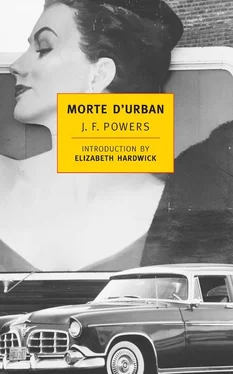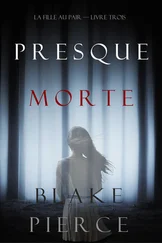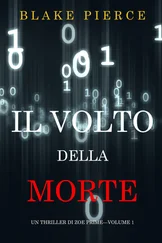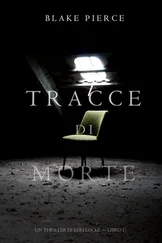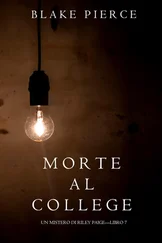This roused Paul, who had been dozing, and he now lowered his own minnow, which was quite dead, into the water. Paul didn’t seem to care whether he caught any fish or not. Father Urban recalled that on the drive north Paul’s part in the conversation had consisted mostly of remarks like “I was fishing out of the same boat when the boss landed this whale in Florida.” Father Urban didn’t know how Paul managed not to compete with Billy in Florida, but in Minnesota he used a dead minnow.
“This isn’t what I came up here for,” Billy said, addressing the trees on the shore.
“No,” said Father Urban, also to the trees. If this went on, what would it be like when they finally gave up and rode back to Henn’s Haven? Paul, the non-swimmer, had probably been thinking of the return voyage when he pinched the life preserver. Father Urban had been hoping that wind, sun, and moon would do whatever had to be done to improve the fishing, but he was afraid they hadn’t. He had been hoping that it would be possible to go back early, having caught their limit, and get some sleep, and that when they woke up everything would be different — so different, in fact, that he would not find it inconvenient to have a little talk with Billy on the subject of his personal life.
This was a subject that Father Urban hadn’t had to concern himself with in the past, since he was not Billy’s confessor. Until Father Urban arrived at Henn’s Haven and saw Honey — saw Billy with Honey, rather — there had been no reason to suspect that all was not well enough with Billy. For Father Urban’s part, he wished it were none of his business. Billy, however, was known to be a big benefactor of the Order, and as such he had to behave himself in public. What did it mean? Either Billy thought very little of Father Urban or — what was more likely — considered him to be very unworldly indeed. This was an idea that many people had of the clergy, and perhaps the clergy indulged them in it, as did the major communications media, but Father Urban didn’t see how he could have conveyed that idea to quite this extent.
He was up against a situation that had often confronted the Church, and one that had cost her heavily in lives and property. Father Urban had given a lot of thought to this particular aspect of ecclesiastical history, which, generally speaking, suggested that it is too hard for some people, and all too easy for others, to do the right thing. Father Urban felt that Clement VII had been the wrong pope to deal with Henry VIII, and he wondered what the feeling was in Heaven on this point. Centuries later, Pius IX, who had begun so well, had thrown down his cards in a fit of self-righteousness, and the Church was still trying to get back in the game. A bad mistake, that, since it had left the other players at each other’s mercy — and thus had prepared the way for World War I, the Russian Revolution, Mussolini and Hitler, World War II, and now the Bomb.
Father Urban had preached a great many thrilling sermons on saints who had really asked for the martyr’s crown, but he believed that there were others from whose lives we might learn more that would serve us better in the daily round. What of those who had remained on the scene and got on with the job? The work of the Church, after all, had to be done for the most part by the living. There was too much emphasis on dying for the faith. How about living for the faith? Take Lanfranc and William the Conqueror — of whom it was written (in the Catholic Encyclopedia and Father Urban’s notes for a book he might write someday): “He was mild to good men of God and stark beyond all bounds to those who withsaid his will.” Lanfranc had recognized the importance of being more than merely right. He must have operated with great finesse, for he had got William and Matilda to found two abbeys by way of penance for their contumacy. Thereafter, the Conqueror was always careful to show himself a considerate and respectful son of the Church. Call the book “Lambs Who Lay Down with Lions and Lived.” Maybe call it “Conquering Lambs.”
“Hold it,” Billy whispered.
Father Urban glanced at Billy’s line and saw that it wasn’t engaged. Then, as the boat turned a rocky corner, he saw what Billy saw — a deer. Its antlers had looked like a floating branch.
Paul saw it last. After watching for a moment, he said, “Hey, how about that?”
Billy was trying to count the points on the antlers. “He’d look all right on your wall, Father.”
“Oh, for a camera!” said Father Urban.
“Brother Whatsit could see what a deer really looks like,” Billy said. “Go over to him. Want to say hello.”
The deer was making for a little peninsula of sand and gravel. Father Urban, mindful of the fishing lines, let the deer get between the boat and the shore before coming alongside. The deer kept going, as if following a narrow path in the water. Billy reached out and touched the antlers. Seizing one, he ducked the deer’s head under the water, which was easier done than Father Urban would have imagined. Billy did it again — and Father Urban, who hadn’t liked it the first time, said nothing. Then he realized that Billy was trying to drown the deer.
There was power in the deer’s neck, but there was no foundation for it. When Billy braced his elbows on the gunwale, he was able to turn the deer by its antlers. When he got the animal squared away from the boat, he pressed down. Father Urban saw the deer’s eyes — big black bubbles — watching him, he thought, and he looked away. He heard bubbles then, and heard the antlers rubbing against the boat. He was feeling strongly what he’d felt only slightly on several occasions in the last three days. He was feeling cheap. The night before, when Billy had introduced him to the Inglises and the Bobs, Father Urban had felt like a poor slum kid who was being treated to a few days of “camp.”
Father Urban threw the motor into high. The boat stood up in the water. He hadn’t counted on that, but he held on, and Paul held on. Billy, holding on to the deer, left the boat on its way up. When it came down, which it did in a loud belly flop, Father Urban reduced speed and circled back. The deer was now swimming for a point farther up the shore. Billy was treading water, apparently in no difficulty, waiting to be picked up.
Father Urban brought the boat slowly alongside Billy and then leaned away while Billy was climbing aboard, with Paul’s help.
Father Urban sensed that the next few minutes would be crucial — that his relationship with Billy was going to be a lot better or a lot worse from now on. The situation was so bad that it might be good. That was really looking on the bright side, of course, but this might be one of those times when Billy would decide he ought to pick up the pieces. With God’s help, it might be so. Billy might respect Father Urban all the more for acting so boldly, for defying him in a good cause, and he might even thank Father Urban for saving him from himself. What Billy had been up to was not, after all, the sort of thing a self-respecting sportsman could look back upon with pleasure. Father Urban might say, “I know, Billy. You wanted to have it stuffed for us. I don’t quarrel with your motives. As a matter of fact, I don’t know where we’d be without them…” But it probably wouldn’t go like that.
“I’m sorry, but I had to do it,” Father Urban said. He started to remove his sweater, meaning to give it to Billy.
Billy indicated that he didn’t want the sweater, and then that he wished to run the motor.
Father Urban got the impression that Billy wasn’t talking to him yet — that the situation was still dangerous, but that Billy was making a tremendous effort to control himself. Getting up to change seats, Father Urban saw Paul slipping back into the bow with the life-preserver cushion, and thought, yes, that would be Billy’s way of paying them back — Father Urban for dunking him, Paul for being a witness. They were in for a rough ride, Father Urban was thinking, when Billy pushed him overboard.
Читать дальше
